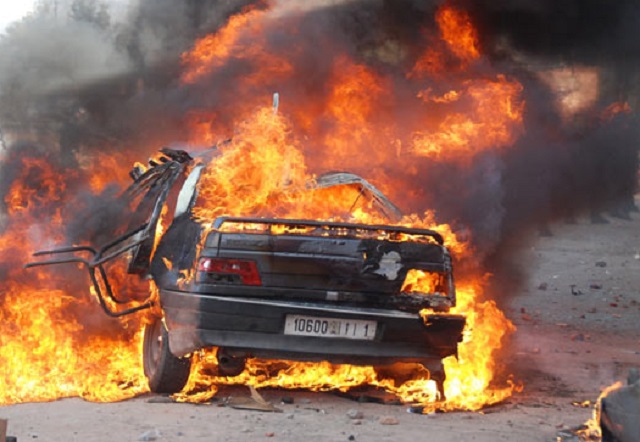Child marriages: Prohibited socio–cultural practice


Saul Gwakuba Ndlovu
ONE of the current issues being discussed by a large number of people in various parts of Zimbabwe is juvenile marriage, a socio-cultural practice that is prohibited by the country’s constitution, and is, therefore a crime.
The word “juvenile” means “youthful” or “young”, or when used derogatively it simply means “immature”.
In legal terms it implies below the age of legal responsibility.
Some judiciary systems have what are called “juvenile courts” whose mandate is to try children under the age of 17 years, or 15 years as the case may be since the age of majority differs from culture to culture.
Juvenile marriages are thus those matrimonial unions or contracts in which the parties are or one of them is below their particular nation’s legal age of majority.
Zimbabwe’s legal age of majority is 18 years. That may not necessarily be the same for girls to be regarded as legally marriable, their marriable age being lower by two or so years.
Marital practices are determined by largely economic factors in many traditional rural-based communities.
In some communities ruled very strongly by religious faith, marriages are based on and determined by biblical verse or verses from the Old Testament.
The history of the matrimonial traditions of particularly the Shona tribal cluster tells us that it was a common practice to betroth a girl at infancy.
Among the BaKalanga, some families betrothed their daughters even before they were born.
In such a case, the unborn bride was called nlongo buta, the literal meaning of which is “the sleeping bride”.
Dowry (malobolo) would be paid well in advance for such a bride, while her marital position at her husband’s village would be recognised, for years before the marriage was actually solemnised.
However, that is another story, quite different from “juvenile marriages,” the topic of our discussion.
However, traditionally it was the custom for pre-puberty Ndebele, Kalanga and Shona boys and girls to play father-mother by organising what were called amandlwane in iSiNdebele, mazakhwa in TjiKalanga, and mahumbwe in ChiShona.
That custom was destroyed by two socio-cultural factors brought to Zimbabwe by Christian missionaries.
One was the biblical-based Christian religion, a Hebrew, Greek and Roman culture-based religious practice.
The second factor was the western European type of education whose foundations are in the Hellenic social traditions. These two factors coupled with the Roman-Dutch legal system and its moral (not moralistic) values replaced the marital traditions of Zimbabwe.
Today, the custom is to educate the country’s youths, a legal responsibility of parents and guardians and education being an inalienable constitutional right of every Zimbabwean child.
It is regarded as unlawful by today’s Zimbabwe’s laws which are based on Roman-Dutch jurisprudence traditions for children under 15 years to be married.
It is the general perception that the relevant law about this matter is by and large not well known in the country.
It is known that the state-owned electronic media signals cannot reach every remote corner of Zimbabwe.
The print media’s circulation is more or less confined to the urban, peri-urban and to some growth points.
That means that a large segment of the national population out there does not know much, if anything at all, about the laws passed by their own country’s parliament from one session to another.
The National Assembly has about 270 members, each one representing a constituency.
Each MP, except 62 proportional representation members, have a duty to keep their respective constituencies informed about laws enacted by each session.
They were elected to represent those constituencies in Parliament where national laws are formulated debated and passed.
That is their core responsibility, that is, to legislate for the nation. Having done so, they have to inform those who sent them to parliament.
It is not excusable for any MP to fail to report back regularly to his or her constituency.
Those representing rural constituencies some of which are under headmen and chiefs have a much easier administrative machinery to keep in regular contact with their constituents (voters)
They can and should give their areas’ district administrators copies of relevant government gazettes to pass on to headmen and chiefs who would in turn convene meetings at their respective courts (madare, njibahhe, amadale) to read and explain the contents to the people.
MPs representing commercial farming and mining areas or centres can use appropriate offices from which to distribute government information literature such as gazettes.
It would, however, be irresponsible to use such company centres to circulate political party propaganda material. For that type of information, party offices and the usual well established party channels should be utilised.
The need for MPs to inform their constituencies about the country’s laws and whatever government proclamations is quite obvious especially if we take the well known old saying: “Ignorance is no defence” into consideration.
In the bad old colonial days many black people were arrested and fined for “trespassing” by merely walking along a footpath across a white settler’s farm.
On explaining that they did not know that it was a crime to walk along the path, the magistrate who was inevitably white, of course, would angrily and arrogantly respond: “Ignorance is no defence!”, and accordingly find the accused guilty as charged.
Without getting into the merits or otherwise of that controversial legal principle, we should emphasise that ignorance of whatever type and about whatever issue is one of the three negative socio-economic factors we said we would fight against in a free Zimbabwe.
MPs would not be effectively carrying out their contract with the people if they do not regularly brief them (the people) about their parliamentary work.
Not withstanding their duty to develop their respective areas economically, socially, culturally and politically, they must educate their various constituents about their rights and responsibilities.
Saul Gwakuba Ndlovu is a retired, Bulawayo-based journalist. He can be contacted on cell 0734 328 136 or through email. [email protected]











Comments